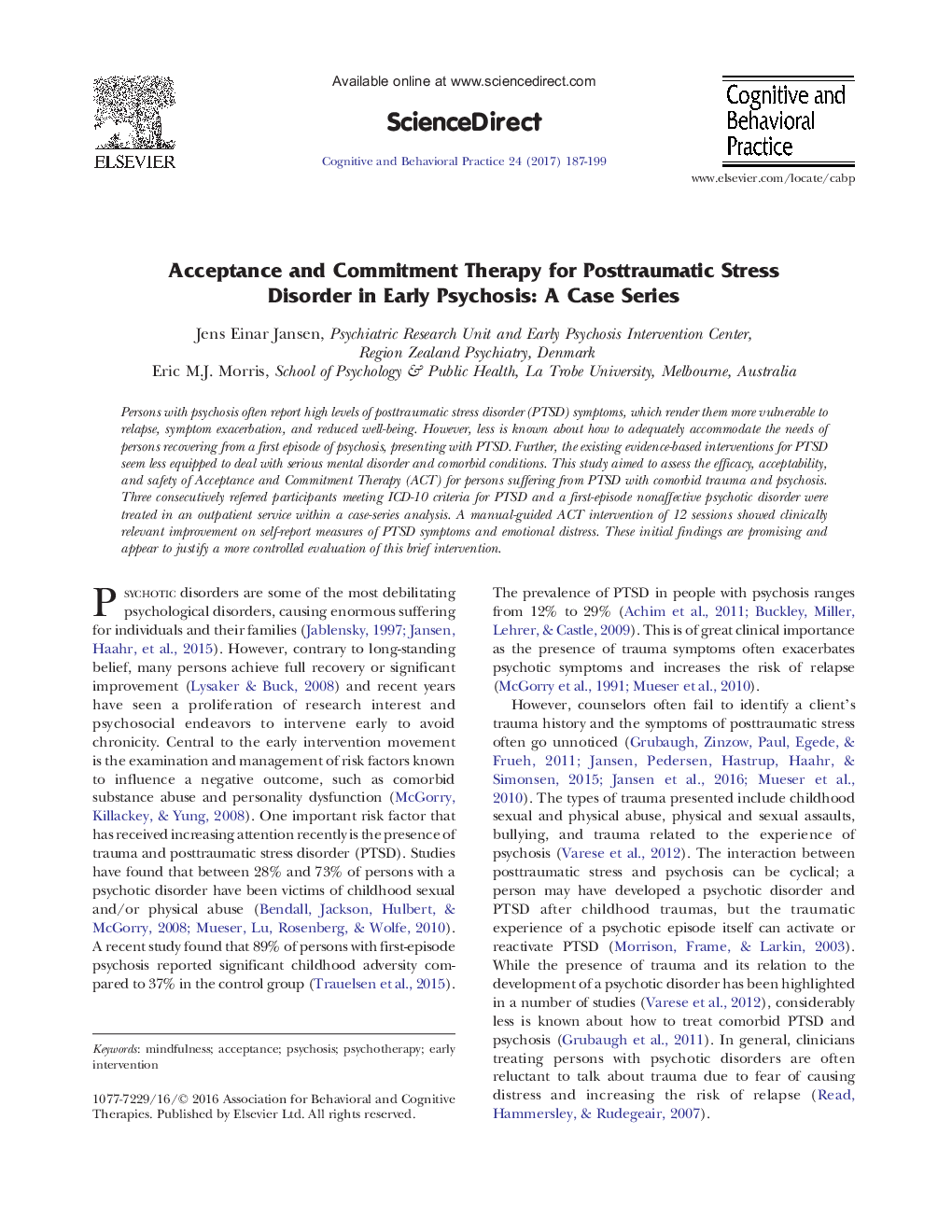| Article ID | Journal | Published Year | Pages | File Type |
|---|---|---|---|---|
| 5038598 | Cognitive and Behavioral Practice | 2017 | 13 Pages |
â¢Three persons presenting with comorbid PTSD and schizophrenia were treated within a case seriesâ¢A manual-guided 12-session Acceptance and Commitment Therapy (ACT) is presented as a promising approach to deal with this comorbidityâ¢Patients showed clinically relevant improvement on all measures, including PTSD symptoms, anxiety, and depressionâ¢There was also reliable improvement in psychological flexibility, which is suggested as the process of change in ACT
Persons with psychosis often report high levels of posttraumatic stress disorder (PTSD) symptoms, which render them more vulnerable to relapse, symptom exacerbation, and reduced well-being. However, less is known about how to adequately accommodate the needs of persons recovering from a first episode of psychosis, presenting with PTSD. Further, the existing evidence-based interventions for PTSD seem less equipped to deal with serious mental disorder and comorbid conditions. This study aimed to assess the efficacy, acceptability, and safety of Acceptance and Commitment Therapy (ACT) for persons suffering from PTSD with comorbid trauma and psychosis. Three consecutively referred participants meeting ICD-10 criteria for PTSD and a first-episode nonaffective psychotic disorder were treated in an outpatient service within a case-series analysis. A manual-guided ACT intervention of 12 sessions showed clinically relevant improvement on self-report measures of PTSD symptoms and emotional distress. These initial findings are promising and appear to justify a more controlled evaluation of this brief intervention.
